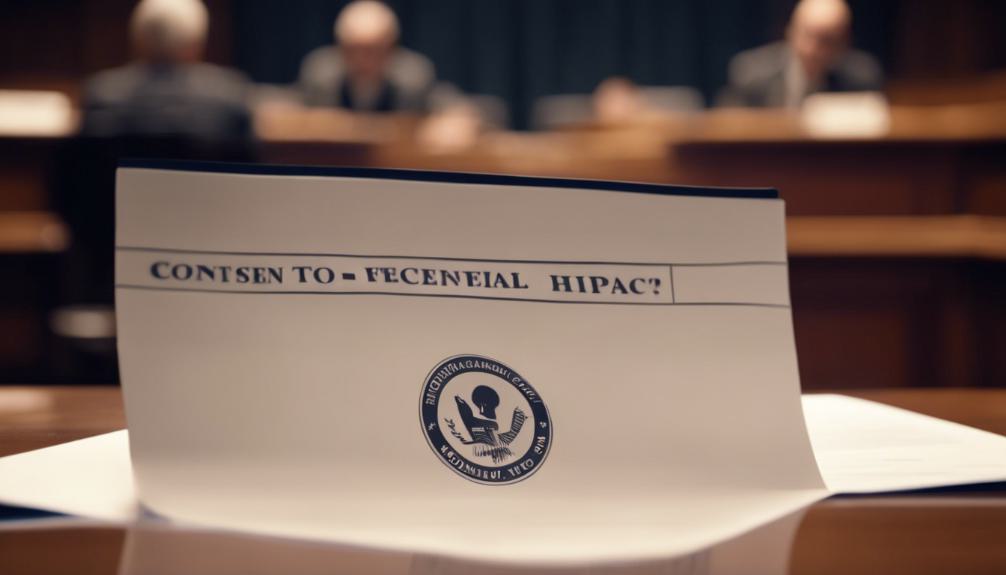Express Scripts Caught Sharing Data With Facebook
The recent allegations against Express Scripts for sharing sensitive user data with Facebook without consent have ignited a complex debate on privacy rights, legal boundaries, and corporate ethics. This incident not only challenges the integrity of patient confidentiality under HIPAA but also raises pivotal questions about the intersection of healthcare data and digital marketing practices. As we explore the intricacies of this case, including the alleged use of Facebook Pixel for data capture, the implications for individuals' privacy, and the ensuing class action lawsuit, it is imperative to understand the broader ramifications for digital privacy and the safeguarding of personal health information in an increasingly interconnected world.
Key Takeaways
- Express Scripts unlawfully shared personal data with Facebook via Pixel spyware.
- The shared data violated Federal Wiretap Act and California privacy laws.
- A class action lawsuit has been filed against Express Scripts for privacy violations.
- The data breach risks permanent harm and identity theft for affected customers.
Privacy Violations Explained

How did Express Scripts allegedly violate privacy laws by sharing sensitive data with Facebook? The allegations center around the use of Facebook Pixel, a tool purportedly deployed on Express Scripts' websites. This technology enabled the unauthorized relaying of personal information to Facebook, a practice that not only contravenes privacy norms but also raises significant ethical concerns. By integrating such spyware, Express Scripts is accused of allowing Facebook to monetize this sensitive data, hence exploiting the trust users place in their healthcare providers. This action seemingly disregards the fundamental right to privacy, particularly in the context of personal health information. The situation underscores a pressing need for vigilance and accountability in safeguarding patient data against unauthorized access and exploitation, aligning with the core value of serving others by protecting their privacy and well-being.
Legal Framework and HIPPA

Understanding the allegations of privacy violations necessitates an examination of the legal protections afforded by the Health Insurance Portability and Accountability Act (HIPAA) and its application to cases such as Express Scripts. HIPAA, a cornerstone in the protection of patient health information, mandates the confidentiality and security of healthcare data. It establishes national standards to safeguard medical records and personal health information, ensuring that entities like Express Scripts adhere to strict privacy rules. These rules are designed to prevent the unauthorized sharing of sensitive health information, highlighting the importance of compliance to maintain the trust and confidentiality integral to healthcare. For those dedicated to serving others, understanding and adhering to these legal frameworks is paramount in upholding the rights and dignity of individuals, reinforcing the ethical standards that underpin the healthcare industry.
Class Action Lawsuit Details

In a significant legal development, a class action lawsuit has been filed against Express Scripts for allegedly sharing personal health information with Facebook without user consent. This case highlights the growing concern over digital privacy and the responsibility of companies to protect sensitive data. The lawsuit alleges that by using Facebook Pixel spyware on its websites, Express Scripts unlawfully relayed confidential information, violating the Federal Wiretap Act and California Invasion of Privacy Act. These actions not only breached the trust of their users but also potentially compromised their privacy and security. The lawsuit seeks to hold Express Scripts accountable, demanding damages for those affected and aiming to set a precedent that underscores the importance of digital privacy and the protection of personal health information.
How to Join the Lawsuit

After examining the details of the class action lawsuit against Express Scripts, individuals concerned about their privacy rights may be wondering about the steps required to participate in this legal action. To join, potential participants should first verify their eligibility, which includes being a U.S. resident whose communications were intercepted by Express Scripts through the use of Facebook Pixel. Eligibility often requires providing specific details related to the unauthorized data sharing, including time frames and the nature of the data intercepted. Following qualification, individuals may need to complete a formal claim form, typically available on the lawsuit's official website or through legal representatives managing the case. It is important to adhere to submission deadlines and provide accurate, detailed information to guarantee a valid claim.
Summary of Data Risks

The Planet Home Lending data breach, involving the exposure of 200,000 customers to potential identity theft, exemplifies the severe risks associated with data privacy violations. This incident underscores the critical importance of safeguarding personal information and adhering to legal standards designed to protect privacy. When entities like Express Scripts allegedly share sensitive data with platforms such as Facebook without consent, they not only betray customer trust but also potentially infringe upon federal and state privacy laws. Such actions can lead to significant legal repercussions and undermine public confidence in data security measures. It is imperative for organizations to rigorously enforce privacy policies and for individuals to remain vigilant about where and how their personal information is used, to mitigate the risk of unauthorized data exposure and exploitation.
Learning From the Breach

Analyzing the Express Scripts data breach highlights critical lessons for enhancing future data security measures and privacy protections. Key among these is the imperative for organizations to rigorously assess third-party tools, such as Facebook Pixel, for compliance with privacy laws and regulations, including HIPAA. This breach underscores the importance of implementing robust data governance frameworks that prioritize patient confidentiality and the secure handling of sensitive health information. Additionally, fostering a culture of transparency and accountability within organizations can substantially mitigate risks associated with data sharing and processing. By learning from this incident, businesses can better safeguard against similar breaches, ensuring that they not only comply with legal standards but also uphold the trust and well-being of those they serve.
Frequently Asked Questions
How Does Facebook Pixel Specifically Work to Collect Data From Users on Express Scripts' Websites?**
Facebook Pixel operates as a piece of JavaScript code embedded on websites, including those of Express Scripts. This tool enables the collection of data about the website's visitors by tracking their interactions, such as page views, form submissions, and other activities. The collected data helps in optimizing advertising campaigns, understanding user behavior, and enhancing the overall effectiveness of online marketing efforts. It is a critical tool for data-driven decision-making in digital marketing strategies.
This Question Delves Into the Technical Functioning of Facebook Pixel, Aiming to Understand the Mechanisms Through Which It Tracks and Collects User Data on Third-Party Websites.
Exploring the intricate workings of Facebook Pixel exposes a digital tapestry where every click and scroll paints a detailed portrait of user behavior on third-party websites. This sophisticated tool embeds itself quietly, capturing data to refine user experiences and tailor advertisements. By understanding its mechanisms, we illuminate paths to safeguarding digital footprints, fostering an environment where technology serves to enhance, not exploit, our online journeys.
What Steps Can Individuals Take to Protect Their Data When Using Websites That Might Employ Similar Tracking Technology?**
To safeguard personal data on websites potentially employing tracking technologies, individuals should utilize browser extensions designed to block trackers, regularly clear cookies, and opt for browsers emphasizing privacy. Enabling ‘Do Not Track' settings, scrutinizing privacy policies before engagement, and employing virtual private networks (VPNs) to encrypt web traffic are advisable measures. Awareness and proactive steps are key in protecting personal information from unauthorized surveillance and data collection practices.
This Question Seeks Practical Advice on Data Protection Strategies for Users to Safeguard Their Personal Information From Unauthorized Tracking Technologies.
To safeguard personal information from unauthorized tracking technologies, it is imperative to adopt robust data protection strategies. An interesting statistic reveals that 74% of consumers feel they have lost control over how their personal information is collected and used. To serve this concern effectively, individuals are advised to utilize browser privacy settings, employ ad blockers, regularly update privacy settings on social media, and be cautious of the permissions granted to applications and websites.
Are There Any Legal Precedents for This Kind of Lawsuit, and What Were the Outcomes?**
Legal precedents for lawsuits involving privacy breaches and unauthorized data sharing are becoming increasingly common. These cases often hinge on violations of the Federal Wiretap Act, the California Invasion of Privacy Act, and HIPAA regulations, which protect personal and health information. Outcomes vary, with some resulting in settlements that include financial compensation for affected individuals and mandates for improved data protection practices by the offending parties. Such legal actions underscore the importance of safeguarding personal information.
Conclusion
In the digital era, where personal information is the currency of the domain, the breach by Express Scripts serves as a stark reminder of the fragility of privacy. Like a fortress whose walls have been breached, the sanctity of personal health information has been compromised, illuminating the critical need for stronger safeguards and vigilant guardianship. This episode underscores the imperative for an unwavering commitment to upholding the principles enshrined in privacy laws, ensuring that the digital domain remains a safe haven for personal information.

This post has been generated by AI and was not reviewed by editors. This is Not legal advice. Please consult with an attorney.
